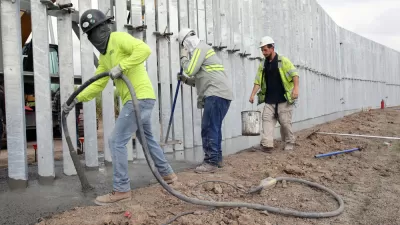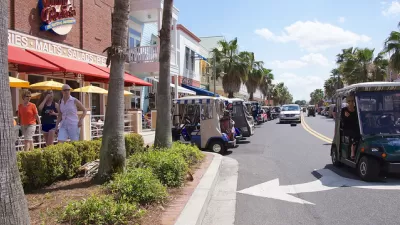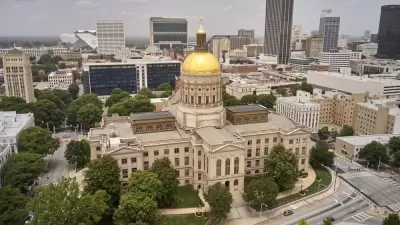Irvin Dawid discovered Planetizen when a classmate in an urban planning lab at San Jose State University shared it with him in 2003. When he left San Jose State that year, he took with him an interest in Planetizen, if not the master's degree in urban & regional planning.
As a long-time environmental activist, he formed the Sustainable Land Use committee for his local Sierra Club chapter and served six years on the Bay Area Air Quality Management District’s Advisory Council from 2002-2008. He maintains his interest in air quality by representing Sierra Club California on the Clean Air Dialogue, a working group of the Calif. Environmental Dialog representing business, regulatory and public health/environmental interests.
Major interests include transportation funding, e.g., gas taxes, vehicle miles traveled (VMT) fees, road tolls and energy subsidies that lead to unlevel playing fields for more sustainable choices.
He hails from Queens (Bayside) and Long Island (Great Neck); received an AAS in Fisheries & Wildlife Technology from SUNY Cobleskill and a B.S. from what is now Excelsior College.
After residing for three years on California’s North Coast, he’s lived on the San Francisco Peninsula since 1983, including 24 years in Palo Alto. Home is now near downtown Burlingame, a short bike-ride to the Caltrain station.
He’s been car-free since driving his 1972 Dodge Tradesman maxi-van, his means to exit Long Island in 1979, to the junkyard in 1988.
Major forms of transportation: A 1991 'citybike' and monthly Caltrain pass, zone 2-2. "It's no LIRR, but it may be the most bike friendly train in America."
Irvin can be reached at [email protected]

Texas County First in Nation to Issue Second Stay-at-Home Order
The first shelter-at-home order issued in the pandemic's resurgence in the U.S. took effect Wednesday morning in the Rio Grande Valley in South Texas, an overwhelmingly Latino region that has been disproportionately affected by the coronavirus.

Where the Coronavirus Is on Track for Containment in the U.S.
As the virus surges throughout the South and West and heads north into the Midwest, the Northeast is the one region that has weathered the current phase of the pandemic the best. As of July 21, only one state in the U.S. is on track to contain COVID.

The Virus Meets The Villages
The COVID demographic is changing. What began in the current resurgence as largely a younger cohort is now affecting older, more vulnerable group seen in the pandemic's first phase in the Northeast. The Villages, Florida, would appear vulnerable.

Pandemic Containment Funding in Jeopardy
When President Trump asserted, "We do too much (coronavirus) testing," he wasn't kidding. He wants to strip $25 billion in funding for testing and tracing needed by states where COVID-19 cases are surging and testing is not meeting demand.

Georgia Feud Over Mask Mandates May Not Be What it Seems
Georgia Gov. Brian Kemp (R) has sued Atlanta Mayor Keisha Lance Bottoms (D) and the Atlanta City Council over the city's mask mandate, which is stricter than mask provisions defined in the governor's July 15 executive order.

























